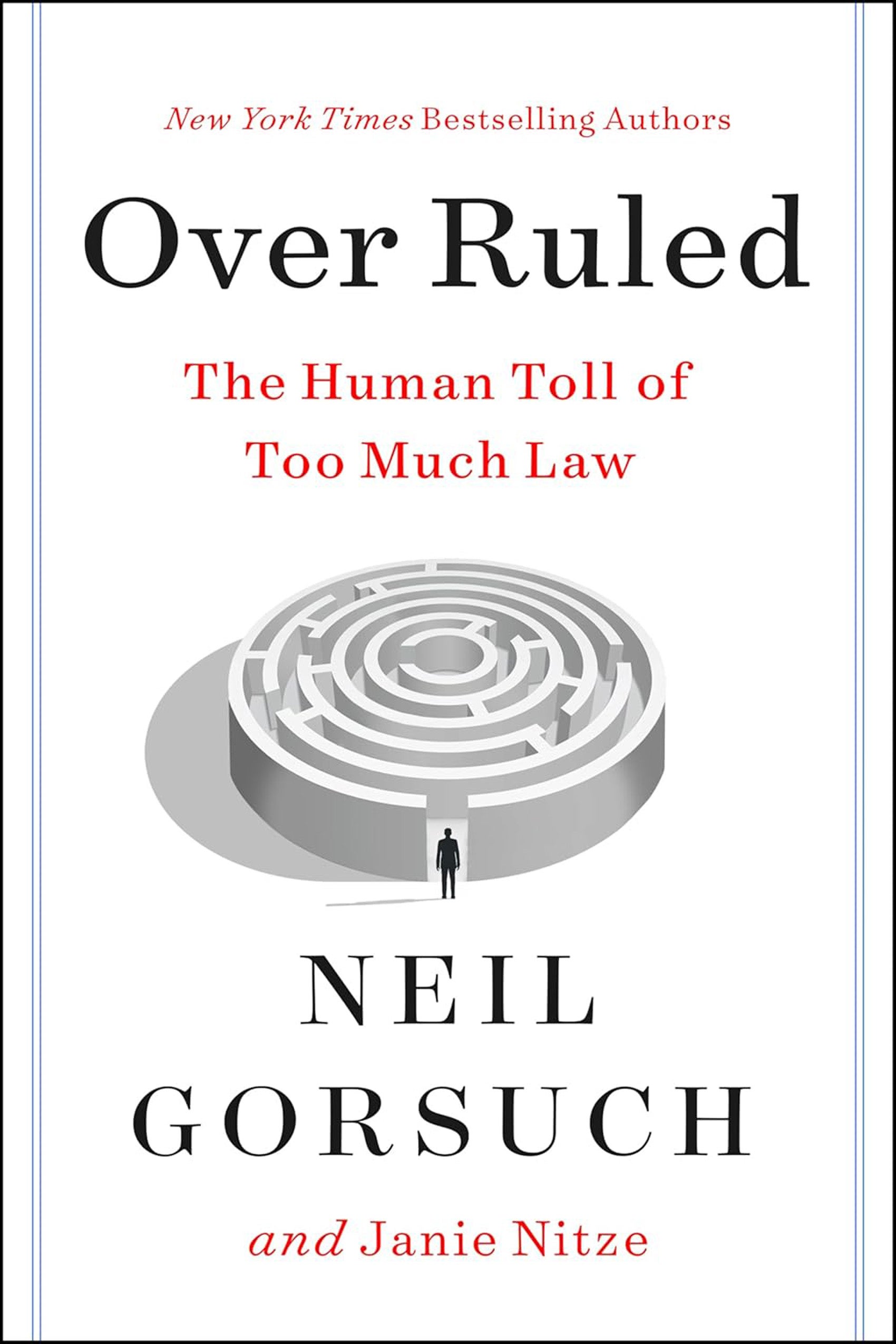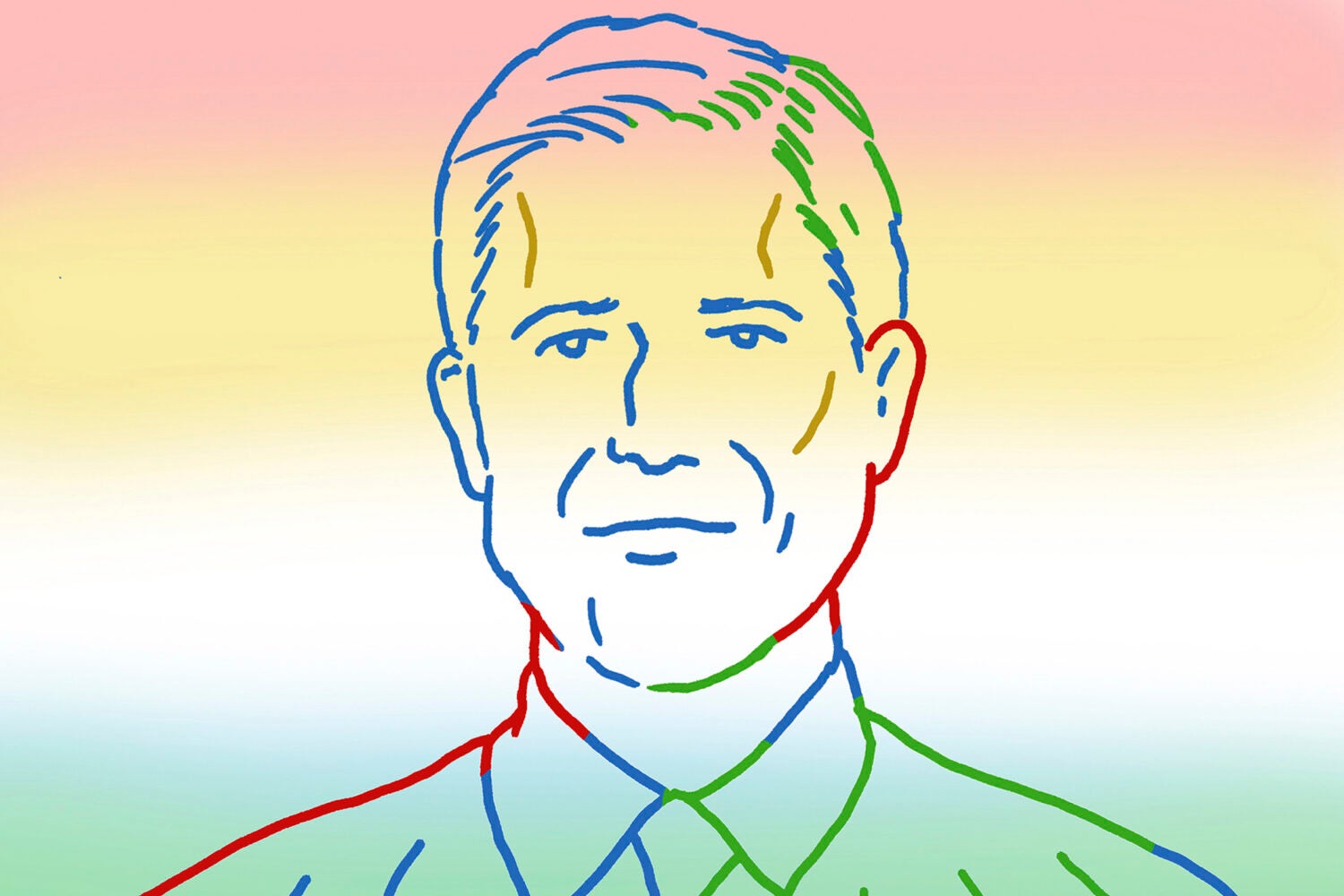
Before he became a United States Supreme Court justice, Neil Gorsuch ’91 heard a case on the federal court of appeals in Denver involving a home health care company accused of fraud. The dispute had gone through administrative and judicial appeals, most of which the company had lost. That made it all the more surprising for Gorsuch to discover that the regulations the company allegedly violated in 2008 were not enacted until years later.
The case sparked the idea for his latest book, “Over Ruled: The Human Toll of Too Much Law,” written with his former law clerk Janie Nitze ’08. It was one of many instances when the burgeoning number of laws and regulations — much of them from administrative sources not subject to democratic elections — have caused harm despite good intentions, according to Gorsuch.
“The episode led me to reflect on my years as a judge and realize that I had seen many — so many — cases where the sheer volume and complexity of our laws had swallowed up ordinary people,” he writes.
He catalogs the expansion of laws, noting that in recent years federal statutes and the Code of Federal Regulations have each ballooned to tens of thousands of pages. Furthermore, whereas in the past, laws came primarily from local and state authorities, federal law now predominates, he writes, allowing “national authorities to dictate a single answer for the whole country.”
The book features stories that he contends demonstrate the problems that can arise from too much law. In one case, a fisherman was prosecuted after he was accused of impeding an investigation by throwing back into the ocean fish that an agent had identified as undersized. He was charged with violating the Sarbanes-Oxley Act, which Gorsuch notes was intended for financial crimes. However, in this case its provision not to destroy financial records including any “tangible object” was broadened to include fish. After many years of lost wages and a brief jail sentence for the fisherman, the Supreme Court ruled that Sarbanes-Oxley did not in fact cover red grouper thrown overboard.
Gorsuch also cites landowners in Montana who were prevented from cleaning toxins from their land beyond what the Environmental Protection Agency deemed “an acceptable cancer risk range.” As a result, he writes, “A federal law designed to promote the cleanup of contaminated lands thus became a tool to thwart a local effort to do just that.”
Another case involves a veteran denied benefits when Department of Veterans Affairs officials ruled contrary to Congress’ statutory directions (the Supreme Court later agreed with the agency, with Gorsuch dissenting). In addition, he highlights the proliferation of criminal laws and harsher sentencing that have unduly punished nonviolent offenders (one person, for example, was sentenced to 845 years after being convicted of fraud).
Gorsuch praises efforts to address the issues caused by “our mountain of laws,” such as those of state commissions charged with retiring obsolete statutes and with reforming burdensome licensing requirements. He also advocates for civics education and civil dialogue. Our democracy, he writes, depends on people willing to stand up “to defend the rights to democratic self-rule, equal treatment, life, liberty, and the pursuit of happiness that belong to us all.”
